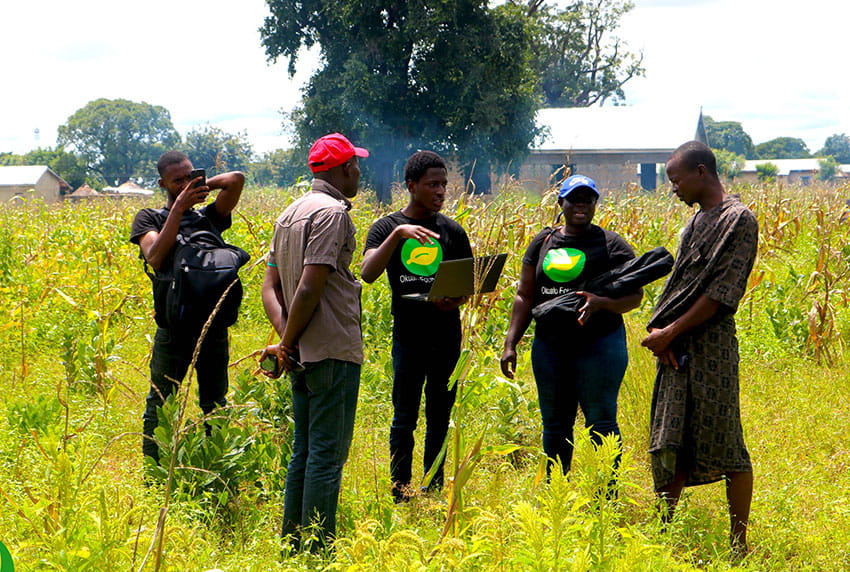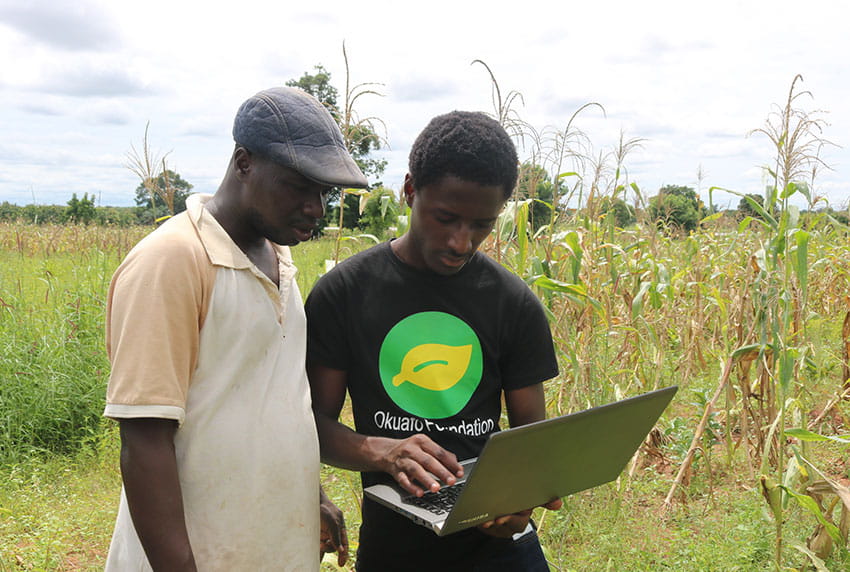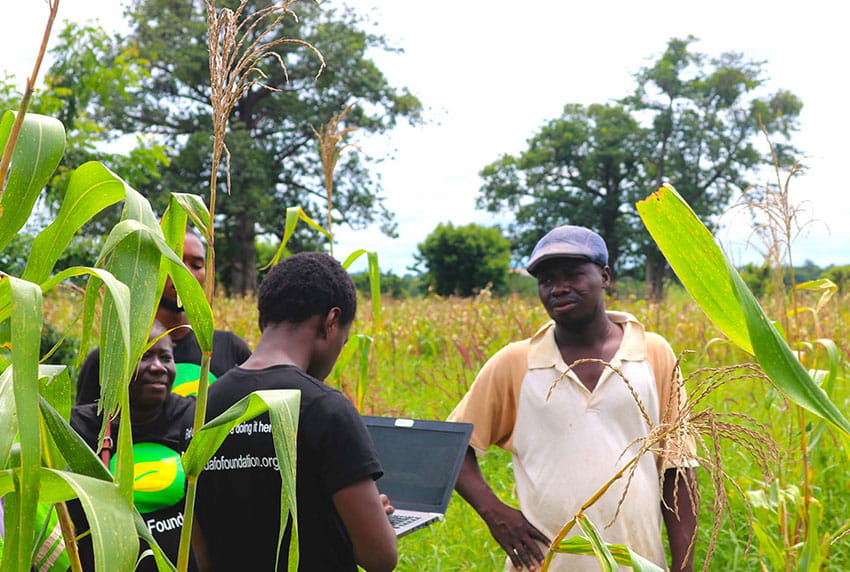Mustapha Diyaol Haqq,
Co-founder of Okuafo Foundation
(2020 Zayed Sustainability Prize Food Winner)
By late September 2020, Ghana had recorded more than 46,000 cases of COVID-19, with restrictions extended further to prevent spikes in infections. While Ghanaian President, Nana Addo Dankwa Akufo-Add, praised the incredible amount of work from the government, health officials, frontline workers, and security agencies in guiding the country through the pandemic, the crucial work of non-profit organisation, Okuafo Foundation, continued to deliver impact outside of the spotlight.
In January 2020, Okuafo Foundation won the Zayed Sustainability Prize in the Food category for their innovation which uses artificial intelligence (AI), machine learning (ML) and data analytics to predict and detect crop diseases and infestations. In March, at the outbreak of the pandemic, Mustapha immediately saw the patterns in the COVID outbreaks and the similarities they shared with crop-related issues
Okuafo Foundation pivoted and transformed their DeepFence technology, a crisis-mapping and data visualisation tool, into a COVID-19 hotspots mapping tool. By providing individuals in high-risk areas timely geographic updates on outbreaks, and health workers data on where to focus their limited time and resources, Okuafo Foundation’s technology has played a key role in tackling COVID-19 in Ghana.
“With our solutions, we are amplifying the voices of medical experts and ensuring that people have access to the right information to stay safe. Health centres can use DeepFence to identify hotspots and aim their resources through sanitisation programs, personal protective equipment (PPE) supply or testing. This provides some guidance to ensure help is provided where it is needed the most,” explains Okuafo Foundation co-founder, Mustapha Diyaol Haqq, following a recent trip to a rural community.
At the time of publishing, Okuafo Foundation’s platforms were supporting more than 1,700 users, who in turn pass on vital information about COVID-19 to their communities. An average of 68 requests for data are made to the platform every day with more than 13,000 data requests fulfilled since the start of the pandemic. During the peak of the outbreak, 800 active hotspots were identified and mapped in Ghana; that number has recently declined to 108.
After Okuafo Foundation’s Zayed Sustainability Prize win earlier this year, the organisation has used prize funds to help drive the repurposing of their technology and to provide logistics for their team to travel to remote communities, along with the supply of PPE. They have also enabled the coordination of COVID-19 awareness programs in some communities that were left out.
Mustapha added, “On the technical side it was not that hard to repurpose our technology for COVID. The hard part has been integrating this to become part of the everyday life for people, and also, due to the restrictions on the major app distribution platforms, widespread adoption of this solution has been really difficult.”
Mustapha concluded, “We are monitoring the impacts of COVID-19 both on economic activities and people living in deprived communities, especially farmers. We will continue to do so and respond accordingly to ensure the risks and negative impacts of the pandemic are mitigated.”
.svg?iar=0&hash=670E3638BC16C0DD69B262DD1184DEA8)



